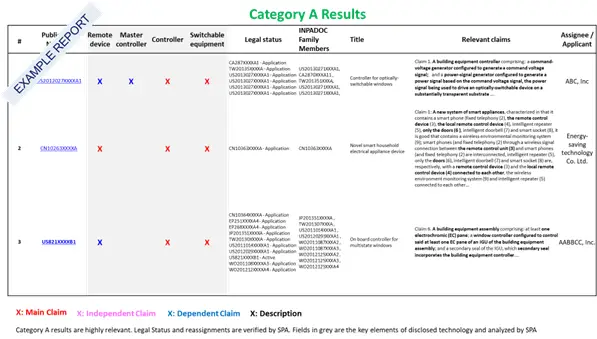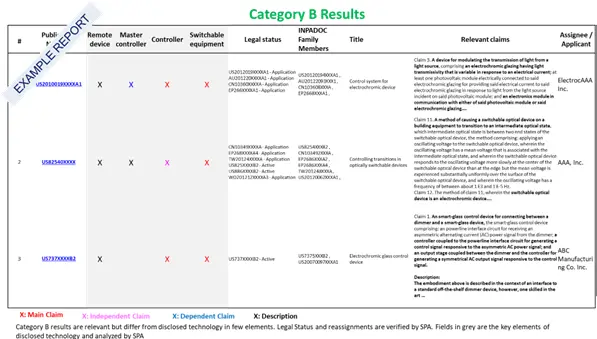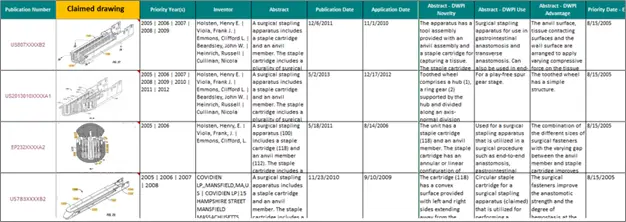Freedom to Operate (FTO) – an introduction:
Freedom to operate search is an imperative due diligence step to be performed for any organization prior to commercializing a newly developed product or process. Freedom to operate searches help identify any potential infringement on the intellectual property (IP) rights of another party.
A Freedom to Operate (FTO) analysis involves a search of patent literature for issued or pending patents and obtaining a legal opinion on whether or not a product, process or service may be considered to be infringing existing patent(s) owned by others. Freedom to Operate Search, also known as Clearance Search, Infringement search or Right to Use.
Freedom to Operate is the ability to make/use/sell/otherwise commercially exploit a technology without the risk of being sued for infringing someone else’s patent. Hence, the search should be carried out before manufacturing, selling, marketing or importing the product. The purpose of searching for FTO is to find any published patent applications or granted patents that include claims covering a particular product or process.
Importance of Freedom to Operate (FTO) search/study:
A carefully thought-through product commercialization strategy requires an early assessment of patent rights. A freedom to operate search and analysis will help develop clarity in both technical and legal aspects of product development.
- Freedom to Operate study helps in ensuring a company/individual is free from any threat of infringement of third party rights.
- The study helps in making informed business decisions such as redesigning the product, identifying the patents for licensing, whether to import or export a product, changing the market for the products, etc.
- Also helps in forecasting future market developments to minimize the risks.
When to conduct a Freedom to Operate (FTO) search?
With significant patent filing taking place across several industries, it is worth conducting Freedom to Operate searches at multiple stages of the product/process development lifecycle. Freedom to Operate is usually conducted in the following scenarios:
- Early stages – Freedom to Operate searches can be conducted in the early research stage of product development to avoid infringements by modifying inventions to “design around” existing patents during the R&D process. By identifying key patents early on, it may be possible to find new ways to design around the claims of the patents that present the highest risk of infringement.
- Late stages – General practice is to conduct Freedom to Operate searches before the commercialization or launch of the product. If any blocking patents are identified at this stage, the products can be subjected to design changes (redesigned) before the product rollout or evaluate licensing opportunities to commercialize the product in specific markets
Getting a Freedom to Operate opinion will open up avenues for licensing, designing around patented features, or getting the go-ahead to commercialize the product or technology.
Key elements of a Freedom to Operate study:
Freedom to Operate Search and Analysis is a complex process as it includes several key elements that need to be considered:
- Geographical limitations: Since intellectual property rights are specific to different jurisdictions, a “freedom to operate” should relate to particular geography/countries/regions where the product is being planned to launch/commercialize. Additionally, PCT applications for the last 30 months can be considered for the search.
- Time frame: As the patent rights are valid for 20 years, the “freedom to operate” study should consider 20 years from the date of publication. Hence, patents older than 20 years can be excluded from the FTO study. Active patents need to be considered for the FTOe study.
- Claim-based analysis: Claims are the most important part of a patent specification. The patent claim defines the boundary of the patent. It defines exactly what is claimed by the invention and therefore what is sought to be protected. Hence, for Freedom to Operate analysis, the search and analysis are based on the patent claims only.
- Product features/components: Freedom to Operate studies should be conducted on all the components of the product. Technology/product/device/process may have many independent aspects that need to be searched alone or in combination.
- Patent Legal Status: Patents that are in force/active should be considered for the Freedom to Operate study. Expired/lapsed/withdrawn patents need to be excluded from the study.
SciTech Patent Art approach to Freedom To Operate (FTO) searches/ study:
An effective Freedom to Operate study can be conducted by collecting and analyzing information during the initiation of the study. The quality of the information gathered plays an important role in making the study effective. SciTech Patent Art (SPA) has been conducting Freedom to Operate searches for over two decades and has developed a Standard Operating Procedure(SOP), including unique approaches that often result in identifying good prior-art and blocking patents. Our Standard Operating Procedure includes:
- Collect sufficient information about the Freedom to Operate study before proceeding with the search. The information should contain:
- A detailed description of the technology, including a list of features requiring clearance. A thorough understanding of the key features and peripheral features of the product will allow the design of appropriate search strategies.
- List of countries or geographies where the technology has to be commercialized
- Patent searches will be conducted for identified key features using appropriate keywords and classification codes.
- Searches will be conducted in multiple databases, such as Derwent Innovation, Questel Orbit, Patbase, Chemical Abstracts, etc.
- Additional searches based on the assignee/inventors or citation searches will also be conducted.
- While conducting Freedom to Operate searches, the following aspects have to be considered.
- Type of publications: Active Patents (granted and patent applications)
- Coverage: Countries of interest and PCT applications filed during the last 2.5 years
- Period of search: Last 20 years
- Both narrow and broad searches will be conducted to cover all the features of the invention. Separate searches will be conducted for each feature independently. The key feature could be process steps, composition, device components, etc. Therefore, each feature is reviewed independently while also combining features and conducting searches.
- The results retrieved will be downloaded by reducing one member per family, and SPA will review the patents from the interesting countries and their relevant family members for relevancy. Patents claiming one or more components of the subject matter will be considered relevant.
- In-depth analysis will be conducted only for the active patents. The analysis will be conducted based on the claims for the patents identified from the screening step. Relevant excerpts will be captured for all the interesting patents. Wherever claimed content needs supporting information from the description, such matter will also be provided.
- If a patent has multiple granted patents, they are analyzed as well. In case of pending patent applications, the most recent amended claims will be considered for analysis.
- The claims, especially the independent claims, of the patents will be analyzed in detail. The pending patent applications are analyzed based on their latest set of claims, which can be sourced through their file histories.
- For foreign language patents, analysis is based on machine translations of title/ abstract/ claims.
- Legal status should be checked for each family member from the countries of interest.
The most relevant results are presented in a manner in which they correlate with the key aspects of the invention to assess its context.
- The relevant art will be mapped against the product element, process steps, device/product components, etc.
- The relevant patents will be classified into two categories:
- Category A: Highly relevant patents that exactly match the proposed product based on the main/independent claim patent/application
- Category B: Relevant patents that are similar to the proposed product based on the main/independent claim of the patent/applications
- The relevant patents will be provided in an Excel Spreadsheet with the necessary analysis fields. The highly relevant/peripheral (Category “A”/Category ”B”) references identified will be presented in the report with bibliographic details and claim-based technical analysis
- The legal status of all family members of most relevant/peripheral documents (For example, EP, US, JP and PCT) will be verified. Abandoned / Lapsed patents will also be included in the report as a separate list, as per the client’s request.
Databases that could be used for Freedom-To-Operate (FTO) study/ search:
![]()
![]()


And others
Contact SciTech Patent Art to learn more about Freedom To Operate searches or if you need our experienced searchers to conduct searches for you.




